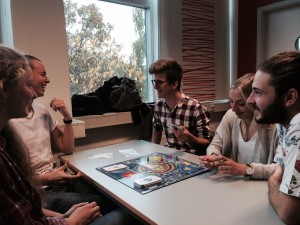ESD stands for “Education for Sustainable Development” and is one of the foremost tools identified by, among others, the United Nations to efficiently contribute to the transition from a clearly unsustainable global development to a sustainable future. The UN has identified that in order to enable current generations to meet their needs while allowing future generations to meet their own, with a balanced and integrated approach regarding the economic, social and environmental dimensions of sustainable development, ESD is not only desirable but a necessity.
Agenda 21 (in 1992) was the first international document that identified education as an essential tool for achieving sustainable development. Since the United Nations adopted the eight international Millennium Development Goals (MDGs) at the Millennium Summit of the United Nations in 2000, practical implementation of practices for achieving a sustainable development has been one of the priority areas of the UN. Following up on the MDGs, the 17 Sustainable Development Goals were adopted in 2015 and in parallel with those the UN works hard to gather the nations of the world to negotiate on actions against climate change in the annual Conference of Parties (COPs), the latest being COP 21 in Paris, December 2015.
In December 2002, the United Nations General Assembly adopted a resolution to dedicate the years of 2005-2014 the Decade of Education for Sustainable Development (DESD). Following this, UNESCO was designated to lead the implementation of the decade for ESD.
ESD has become a movement around the world, many accomplishments being applied through the UN/UNESCO activities and still many more in independent initiatives. Teachers and students in schools and universities around the globe perform tirelessly the concrete work needed for a new generation to become well equipped to take the next great leap of humanity.
At the core of ESD are skills such as interdisciplinary thinking, systems thinking, environmental and social awareness, cooperation, negotiation and constructive dialogue. A sympathetic view towards different stakeholder perspectives and opinions opposite to your own is of key importance for learning many of those skills.
If you want to follow what happens in the world of ESD, please sign up to receive the ESD updates newsletter (see the box at the right column). And if you want to implement education for sustainable development yourself, consider ordering your own set of DILEMMA board games.


